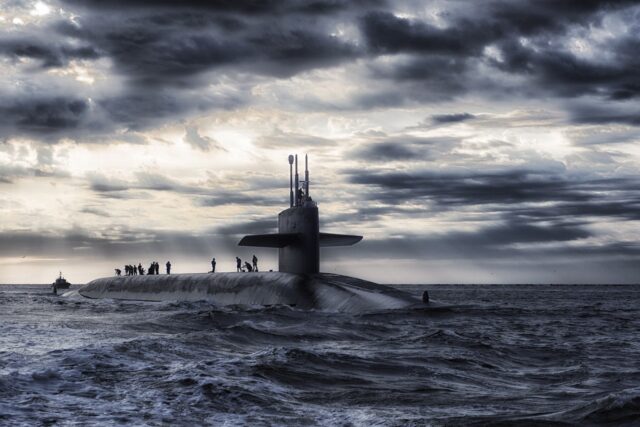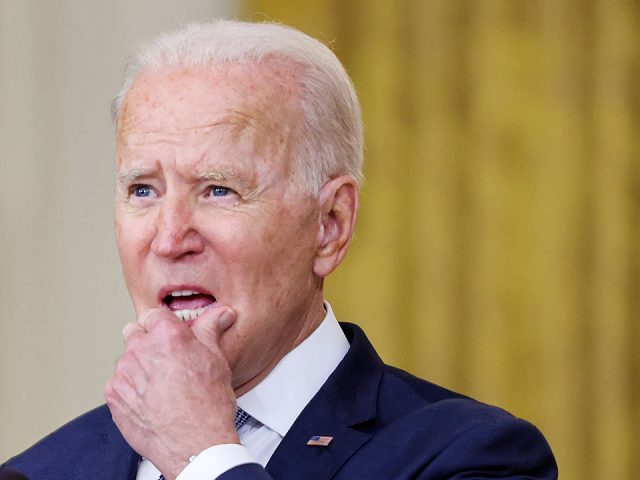SEOUL – South Korean authorities cited the risk of Chinese economic retaliation when they charged marine technology firm SI Innotec last year with violating trade laws for its work on Taiwan’s new military submarine program, according to a police document seen by Reuters and two people familiar with the matter.
In a Feb. 17, 2022 affidavit to a judge seeking the arrest of SI Innotec executive director Park Mal-sik, police said authorities feared a repeat of the sweeping sanctions imposed by Beijing in 2016, after Seoul decided to install THAAD, a U.S. anti-missile system. China agreed to lift those measures in late 2017.
The affidavit said SI Innotec’s deal to supply Taiwan with submarine manufacturing equipment “directly impacts the overall security of South Korea” and police, who had consulted with the country’s arms sales regulator, were “concerned about a crisis similar to a second THAAD deployment, such as economic retaliation”.
The Defense Acquisition Program Administration (DAPA)regulator had told an unidentified subcontractor that the government had “export concerns” regarding Taiwan, and “takes a very cautious stance” on such approvals, the affidavit said.
The judge ordered Park’s arrest on Feb. 28 on grounds that he posed a flight risk and might destroy evidence, according to a person familiar with the matter.
In the sealed affidavit reviewed by Reuters, police cited China’s furious reaction in a 2021 Reuters report about defence contractors and experts from South Korea and six other countries working on Taiwan’s submarine program.
SI Innotec, which was fined in August 2022, and Park, who received a suspended prison sentence, deny wrongdoing and have appealed. Through a company lawyer, Park declined comment.
In a sign of a broader crackdown, two other South Korean companies that allegedly supplied Taiwan were also charged in November with breaking trade laws, and one of their chief executives was accused of industrial espionage, according to court records and four people familiar with the matter.
The identities of defense engineering subcontractors Keumha Naval Technology (KHNT) and S2&K, and the charges facing the co-defendants in their closed-door trial, have not been previously reported. Reuters could not determine if geopolitical tensions were discussed in those ongoing proceedings.
A KHNT official, speaking on condition of anonymity because he was not authorized to talk to media, confirmed an ongoing criminal case. The company declined further comment. S2&K had no comment.
Amid rising military tensions with China, Taiwan unveiled its first homegrown submarine on Sept. 28 in the southern port city of Kaohsiung. The vessel will soon enter sea trials.
The SI Innotec affidavit and interviews with seven people with military, shipbuilding and legal ties show how political considerations about an economic rupture with China, Seoul’s largest trading partner, have weighed on South Korea’s investigations into the three companies. The people spoke on condition of anonymity to discuss ongoing legal proceedings with national security implications.
Seoul’s foreign ministry was “completely against” KHNT’s work with Taiwan and signaled its disapproval to DAPA, according to a person familiar with the subcontractor.
The affidavit said many firms with submarine expertise avoided helping Taiwan because they did not expect government approval given the risk of “bigger damage to (the) economy than benefits”, including a possible Chinese ban on South Korean exports.
Police declined to comment, citing national security concerns. The prosecutors’ office that charged the three subcontractors declined to comment on ongoing legal proceedings. Reuters attempted to reach then-president Moon Jae-in through the office of a former aide. The office referred questions to the foreign ministry.
The foreign ministry said it was aware the trials were underway and referred detailed questions to DAPA. DAPA said it follows the law when making decisions on exports, but had no further comment.
A police investigator, who spoke on condition of anonymity to discuss ongoing legal matters, said that there was no pressure from Moon’s liberal government, which left office in May 2022, to get tough on SI Innotec.
Reuters could not determine whether Beijing pressured Seoul to clamp down on the companies.
Asked by Reuters for comment, a Chinese Foreign Ministry spokesperson accused Taiwan’s ruling Democratic Progressive Party of “colluding with external forces”. The spokesperson did not address a question on whether Beijing pressed Seoul about the subcontractors.
Beijing told Reuters in 2021 that countries involved in Taiwan’s project were “playing with fire”.
Taiwan’s foreign and defense ministries had no comment.
Seoul has no formal diplomatic ties with Taipei and has avoided arming the democratically ruled island over which China claims sovereignty, even as its companies ink weapons deals with other Asian neighbors.
FOREIGN EXPERTISE
Taiwan President Tsai Ing-wen initiated the Indigenous Defense Submarine program in 2016.
The new vessels, which complement two delivered by the Netherlands in the 1980s, are a “strategic deterrent” that make it more challenging for China to project naval power in the Pacific, the Taiwanese admiral leading the project told an internal briefing in September.
Many military experts say that an expanded Taiwanese submarine fleet could complicate a potential invasion by Beijing. US officials, however, warn that such assets should not come at the expense of smaller weapons that would help Taiwan wage “asymmetrical warfare” against China’s far-larger arsenal.
Taiwan drew on the expertise of retired South Korean naval officers – including managers at SI Innotec and KHNT – who are not required by defense ministry regulations to seek permission before working overseas.
SI Innotec is accused of violating the Foreign Trade Act, which requires DAPA’s approval to transfer abroad many “strategic goods” for military use.
The regulator is also tasked with promoting exports, a role that requires officials to make hard decisions on otherwise profitable deals that might irk China, said four people familiar with the criminal cases.
In 2019, SI Innotec agreed a deal with Taiwanese shipbuilder CSBC to supply and install $12 million in welding and assembly equipment for submarine pressure hull manufacturing, according to contracts presented at trial.
The equipment was not designed solely for military purposes and did not involve sensitive technology, SI Innotec told Reuters.
SI Innotec said the contract, at CSBC’s request, listed the equipment’s primary use as for wind power generation. It told Reuters it is “customary” for dual-use equipment contracts to be “signed for industrial use, not exposing military use” and Taiwanese clients are discreet about defense work.
CSBC, which leads construction for the submarines, has an offshore wind power business. It declined to comment on its contracts.
In April 2020, DAPA suggested SI Innotec check with it whether the equipment could be categorized as military goods and require export approval, according to court documents.
In response to Reuters questions, the subcontractor said it told DAPA it was exporting dual-use goods, which can undergo a self-certification process that the regulator does not oversee. The results of that self certification showed export approval was not needed and DAPA was informed, SI Innotec said.
In August 2022, the Changwon District Court fined SI Innotec 14 billion won ($10.42 million).
“The accused were fully aware that the subject equipment would be used to manufacture a military submarine”, the court ruled.
SI Innotec said police designated its equipment as military goods after a “subjective and opaque” consultation with DAPA reliant on “limited data”. It said it had “strong doubts” about whether its exports would be considered military grade if they had not been sent to Taiwan.
SI Innotec CEO Park Moo-sik — who was not personally charged — continues to work in Taiwan on the project, said two people familiar with his movements. He declined comment through a company lawyer.
QUESTION OF PERMISSION
KHNT and its chief executive, retired naval officer Yang Hyang-kweon, are alleged to have illicitly transferred a submarine component to Taiwan, said two people familiar with the subcontractor’s agreement.
Yang – who did not respond to requests for comment – was detained last year and released on bail in March, court records show.
The component was related to a torpedo launching tube, according to two people familiar with KHNT’s work. KHNT’s co-defendant, S2&K, specializes in such systems.
KHNT initially went through DAPA’s process, according to three people familiar with the matter. But it received no response when it wanted to send detailed designs and went ahead to meet a deadline, two of the people said.
It was at this point that Seoul’s foreign ministry told DAPA it disapproved of the deal, one of them said.
“There are many things that South Korea can help Taiwan with but can’t in reality”, said defense diplomacy researcher Cho Hyeon Gyu, who served as military attache in Taipei and Beijing. Relations with China and the difficulty of secretly supporting Taiwan severely narrowed Seoul’s ability to help, he added. – Reuters











